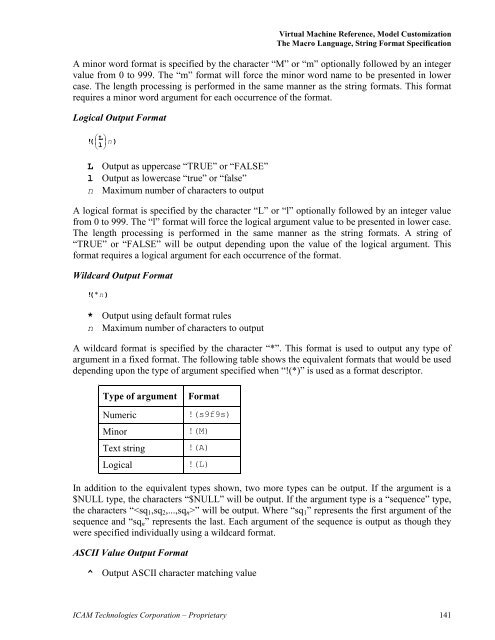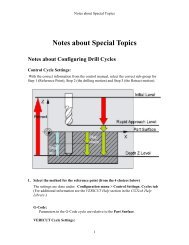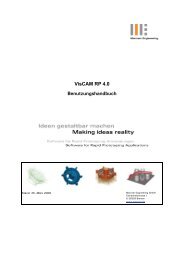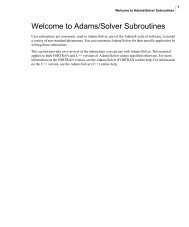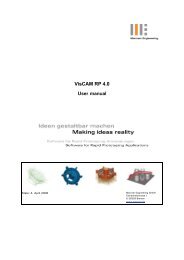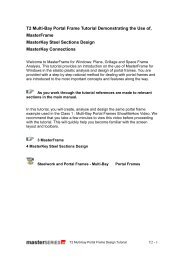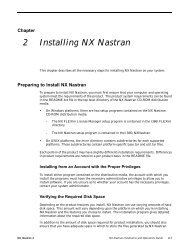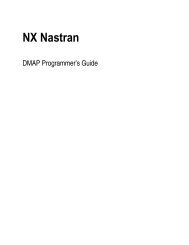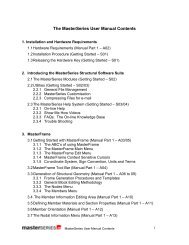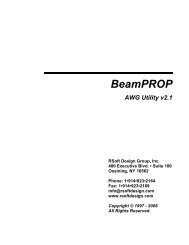Create successful ePaper yourself
Turn your PDF publications into a flip-book with our unique Google optimized e-Paper software.
<strong>Virtual</strong> <strong>Machine</strong> Reference, Model Customization<br />
The Macro Language, String Format Specification<br />
A minor word format is specified by the character “M” or “m” optionally followed by an integer<br />
value from 0 to 999. The “m” format will force the minor word name to be presented in lower<br />
case. The length processing is performed in the same manner as the string formats. This format<br />
requires a minor word argument for each occurrence of the format.<br />
Logical Output Format<br />
)<br />
l L<br />
(!<br />
� �<br />
� � n<br />
� �<br />
L Output as uppercase “TRUE” or “FALSE”<br />
l Output as lowercase “true” or “false”<br />
n Maximum number of characters to output<br />
A logical format is specified by the character “L” or “l” optionally followed by an integer value<br />
from 0 to 999. The “l” format will force the logical argument value to be presented in lower case.<br />
The length processing is performed in the same manner as the string formats. A string of<br />
“TRUE” or “FALSE” will be output depending upon the value of the logical argument. This<br />
format requires a logical argument for each occurrence of the format.<br />
Wildcard Output Format<br />
(! * n )<br />
* Output using default format rules<br />
n Maximum number of characters to output<br />
A wildcard format is specified by the character “*”. This format is used to output any type of<br />
argument in a fixed format. The following table shows the equivalent formats that would be used<br />
depending upon the type of argument specified when “!(*)” is used as a format descriptor.<br />
Type of argument Format<br />
Numeric<br />
Minor<br />
Text string<br />
Logical<br />
!(s9f9s)<br />
!(M)<br />
!(A)<br />
!(L)<br />
In addition to the equivalent types shown, two more types can be output. If the argument is a<br />
$NULL type, the characters “$NULL” will be output. If the argument type is a “sequence” type,<br />
the characters “” will be output. Where “sq1” represents the first argument of the<br />
sequence and “sqn” represents the last. Each argument of the sequence is output as though they<br />
were specified individually using a wildcard format.<br />
ASCII Value Output Format<br />
^ Output ASCII character matching value<br />
<strong>ICAM</strong> Technologies Corporation – Proprietary 141


